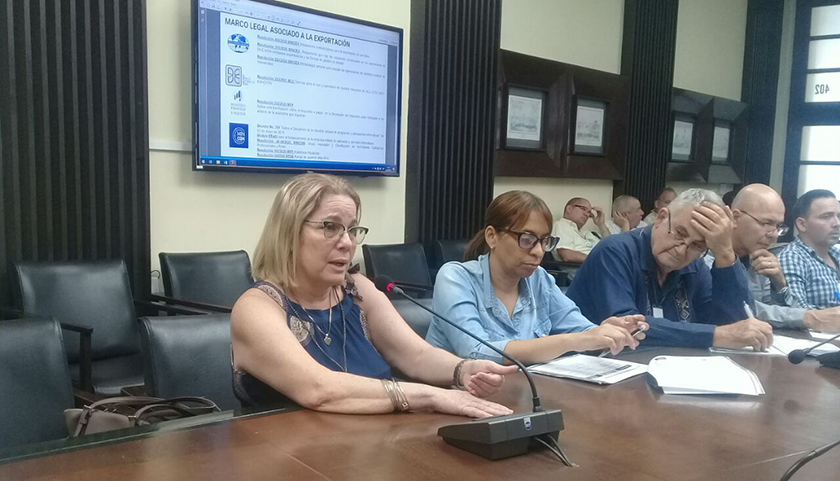
25 February 2023 | For: Cuban News Agency
In the midst of an international phenomenon such as the theft of professional talents, Cuba is fighting for the development of the software industry, of computer applications, a field with potential capacities to generate income from exports and import substitution, it was affirmed today in this capital.
Experts from various organizations agreed on these and other assessments during the meeting of the inter-institutional Council of the macro program known as Productive Transformation and International Insertion, which, as part of the National Development Plan until 2030, aims at the reconversion of that industry towards the digitalization of the country, to invest in technologies.
In the presence of Alejandro Gil Fernández, vice prime minister; Vice Minister of Communications Grisel Reyes León reported that the software industry, or knowledge, is characterized by the high qualification of its human resources, the tendency to be exportable, competitive and by the generation of high-quality jobs and values.
He specified that 30 state entities are taxed towards it, including two technology parks, 161 Mipymes and 800 self-employed workers, and 16 universities in terms of training; However, in many places there are problems with the fluctuation of their personnel, and Cuba is not immune to talent theft by information technology monopolies and first world nations.
He recalled that as part of the legal framework since 2020, Decree 359 on the development of the Cuban industry of computer programs and applications came into force, which together with other regulations have contributed to exports, but in his opinion it is still far from a greater culture of quality, and preparation, which allows us to penetrate various markets.
Both Reyes León and other experts referred to the need, together with the Ministry of Foreign Trade and Foreign Investment, to seek allies to export and not so much to import, in addition to ensuring that the contracting and consultation processes (of foreign clients) do not be lengthy or bureaucratic.
Gil Fernández, also head of the MEP, asked the organizations represented in the inter-institutional Council of the productive transformation and international insertion macro program to propose a management model aimed at having an attractive software industry for young people, in tune with the times or challenges of today, with internal and external changes.
He pointed out that the issue has been dealt with by the country's leadership at different times or scenarios, including the National Innovation Council.